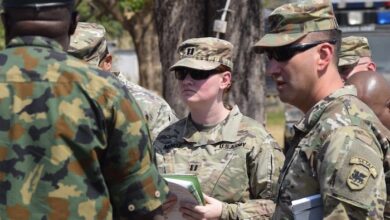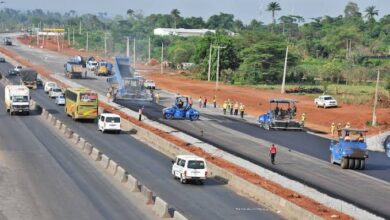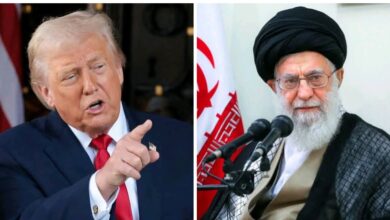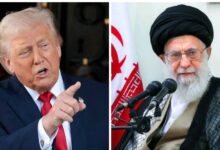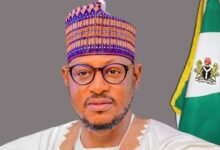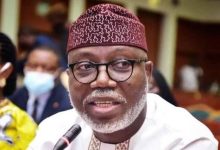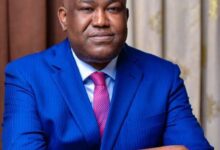Osinbajo’s defence of Federal Government’s appointments

By Muhammad Ajah
Human beings are such complicated creatures who can hardly be satisfied. And Nigerians, though great in mental capacity and wisdom, have proven to be amongst the most complicated of God’s creatures on earth. At least, I have come in contact with many races and nationalists of the world. And despite a natural phenomenon the criticism of every Nigerian government often takes different dimension whenever each government comes to power. The leadership of President Muhammad Buhari is not different. It is on the limelight of this trend even as some citizens are merely proving to be the humans they are.
We can recall that the former President Goodluck Jonathan declared his government as the most criticized in the history of Nigeria. Today, the greatest criticism confronting the incumbent government is alleged skewed appointments in favour of the north. But fact and figures released by the presidency have proven otherwise. The second citizen of Nigeria, Vice President Yemi Osinbajo categorically debunked the claims with facts and figures. Even thence, claims and counter claims over the issue are yet to be doused despite several clear explanations by different organs of the government.
This allegation has been over-flogged but it continuous to resurface at national discuss, nearly three years after the government came to power. The more it is thought to be addressed, the more it pricks critics and opportunists. Some unrealistic claims put the appointments at 81 percent for the northern part of Nigeria. Groups and prominent citizens have taken position on this burning national issue. From all angles, analysis shows that the real talk is between about appointments of Christians and Muslims on one hand and about the appointments of northerners and southerners on the other hand.
Out of about 6,000 appointments announced by the government at its advent, occupied 157 positions were publicized in 2017 and it was discovered that the three geopolitical zones of the north had less numbers than the three of the south. The President promised to expand his government and at the end of December 2017, a large list of appointments of 209 board chairmen and 1,258 board members was publicized and quickly retrieved for review on discovery of some dead Nigerians in the list. The criticism intensified.
The vice president further explained that Buhari’s cabinet comprised 20 Christians and 18 Muslims with four of the five southeastern states having substantive ministers while seven northern states had ministers of state. Further analysis by the VP revealed that the number of Chief Executive Officers of federal agencies and parastatals is from Ogun state followed by Anambra; that is more than the number of those from Katsina state or anywhere. This is in addition to assigning three huge portfolios to a single minister from the Southwest and two other big portfolios to ministers from the zone. He reassured of the president’s stand to look into the security positions.
Special Adviser on Media and Publicity, Femi Adesina, has often dismissed such claims. Putting the records straight that majority of the appointees across different portfolios are not from the north, he said the President remains committed to serving all Nigerians, no matter the tribe, ethnicity or region, and he is also determined to ensure that Nigeria remains strong and united.
As the matter lasted, Catholic Bishops of Nigeria after expressing many national concerns before Mr. President who received them recently at Abuja, reechoed the saga. Ignatius Kaigama, Archbishop of Jos, and William Avenya, the Bishop of Gboko, recalled the Federal Character Principle in the 1999 Constitution of the Federal Republic of Nigeria and concluded that the “disregard for the Principle in some federal government appointments as well as perceptible imbalance in the distribution of federal amenities has created the loss of a sense of belonging in many parts of the country, hence the constant cries of marginalization, agitation for secession and calls for restructuring.”
They sought return to the fine principles of democracy, such as true federalism negotiation and consensus building, as means of achieving a more equitable distribution of the resources and good governance. President Buhari told the Bishops that no ethnic group or political zone had been deliberately marginalized in the appointments made so far by his administration.
In many fora, the president of the Christian Association of Nigeria (CAN), Dr. Samson Ayokunle has sought fairness and balance in federal appointments. In the same vein, President General of Ohanaeze Ndigbo, Chief John Nnia Nwodo, last year in Enugu accused the government of “jettisoning the federal character principle in favour of a geo-political zone.” He warned of initiating a legal action against the federal government on the issue of federal appointments. Also, a Senior Advocate of Nigeria (SAN) Solomon Asemota, in a publication for and on behalf of coalition of Christian groups on August 10, 2016, alleged discriminatory appointments against non-Muslims in Nigeria.
But the Northern Nigeria Christian Politicians (NNCP) said the current government has addressed the “peculiarity of the Northern Nigerian Christian population” more than former Presidents Obasanjo and Goodluck. On the contrary, the Southeast Muslims of Nigeria (SEMON) wants such political opportunities granted Christians of Northern extraction.
Former Edo State Governor Adams Oshiomhole believes that the president is hiring the best hands for the nation’s transformation instead of descending to the level of geopolitical balancing. “We need to employ unusual methods to solve an unusual problem”, he holds.
Socio-political analyst and writer, Bala Muhammad in this column of Weekly Trust on August 20, 2016 titled “Re: on restructuring – another view” carpeted Northern Christians on marginalization. According to him, the mother of all marginalization happens in the South East; the one against Igbo Muslims. He believes that there should be a restructuring vis-a-vis “the way Nigeria treats Northern Christians and Igbo Muslims.” Goose and Gander!
Another erudite writer, Abubakr Siddeeq Muhammad, in his article in the Leadership Newspapers of Friday, November 10, 2017 and Friday, November 24, 2017 entitled: Christian and Muslim Leaders’ Visit to President Buhari (I and II) made shocking revelations. He said that the strangest claim by the Christian Association of Nigeria (CAN) was on the lopsided appointments in favour of Muslims since Buhari took office. “Nothing can be farther from the truth”, he screeched.
Analyzing the 157 appointments on the basis of geopolitical zones, he realized that North-Central had 21, North-East 24, North-West 30, South-East 22, South-South 20 and South-West 40. Further analysis by religion revealed Muslims according to identifiable Muslim names had 65 positions while Christians identifiable by Christian names had 92. Again, he diagnosed the appointees per zone and found the North Central: Muslims 13 Christians 8, North East: Muslims 17 Christians 7, North West: Muslims 30 Christians 0, South West: Muslims 7 Christians 35, South East: Muslims 0 Christians 22 and South-South: Muslims 0 Christians 20. “If you look at the figures, you realize that the complaint should have been coming from the Muslims and not CAN”, he averred.
From all these analyses above, the complaints have continued to be re-echoed from the Christian majority of the South and of recent the Christian minority of the north. To be more specific, the Southeast and Southsouth and the Northern Christian minority are, according to the push by the Christian Association of Nigeria (CAN), the marginalized people by the Buhari-administration. No talk at any level ever recognizes that the Muslim minority of Southeast and Southsouth of Nigeria are citizens who also deserve appointments into the federal government. That is why my readers may need to Google an article entitled: “The missing names in Jonathan’s cabinet”.
Howbeit, the stand of many Nigerians is that Mr. President should, as a listening and compassionate leader, consider the continuous complaints on this matter and reflect federal character and religious balance to the best possible point. The suspicion of favouritism is overbearing to national interest. As he has promised, let him act for Nigeria to achieve greater peace and development under his leadership.
*Muhammad Ajah is an advocate of humanity, peace and good governance in Abuja. E-mail mobahawwah@yahoo.co.uk.


